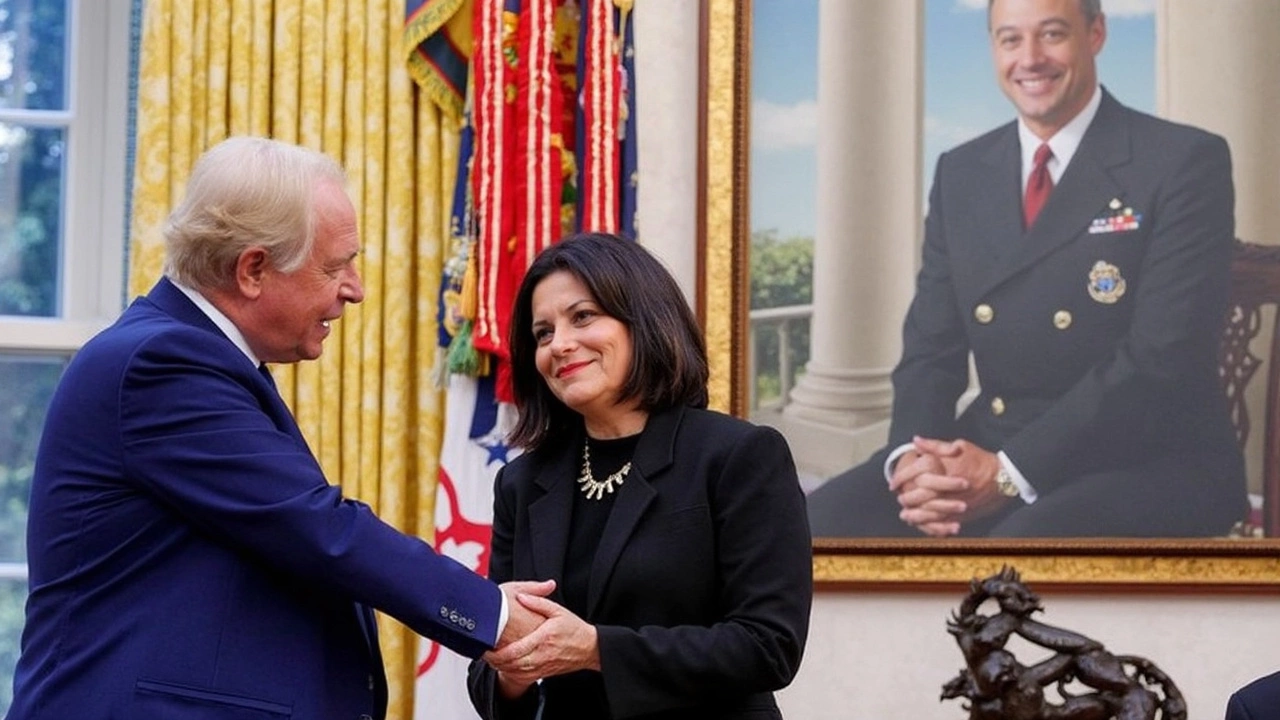Tulsi Gabbard's Controversial Rise to Director of National Intelligence
The Senate's decision to confirm Tulsi Gabbard as the Director of National Intelligence (DNI) has stirred up a whirlwind of debate and political maneuvering. With a narrow 52-46 vote that starkly followed party lines, this appointment stands as one of the more polarizing moments in President Trump’s administration. Gabbard, once known for her Democratic roots as a former Representative from Hawaii, made waves by crossing over to support Trump in the 2024 elections—an act that laid the groundwork for this latest chapter in her career.
Her journey to confirmation was anything but smooth. From the outset, Gabbard faced a series of hurdles, starting with a tight 9-8 committee vote that signaled the controversies to come. Skepticism largely centered around her apparent lack of direct intelligence experience, a crucial criterion in a role as pivotal as this within national security circles.

Contentious Points and Political Dynamics
Several issues from Gabbard’s past became focal points for her critics. Back in 2017, she had a highly publicized meeting with Syrian leader Bashar al-Assad, which raised eyebrows questioning her diplomatic ties. Additionally, her remarks appearing to downplay Russian actions in Ukraine only fueled further dissent among her detractors, who feared a potential soft stance on global adversaries.
Then came the hearings, during which she declined to categorically label NSA whistleblower Edward Snowden a 'traitor', a decision that invited a fresh wave of scrutiny. Despite these challenges, supporters of her appointment, including Senate Majority Leader John Thune, lauded her as a 'patriot' dedicated to unbiased assessments within the intelligence domain.
On the other hand, voices like Senator Elizabeth Warren from Massachusetts were vocal about the perceived risks her confirmation posed. Warren’s concerns painted Gabbard as too closely aligned with foreign regimes contrary to U.S. interests—an argument that resonated with many of her political adversaries.
Gabbard's defense rested on her extensive military service and experience within Congress. She sought to assure the Senate of her commitment to reshaping the intelligence community to better suit the nation’s evolving needs. She promised reform, aiming to bring a fresh perspective to a sector often shrouded in secrecy and red tape.
With her confirmation, the focus of the DNI under President Trump's administration is poised for transformation. This move demonstrates the administration’s strategy to install leaders who align with Trump's vision for national security, possibly setting new precedents in U.S. intelligence operations.
